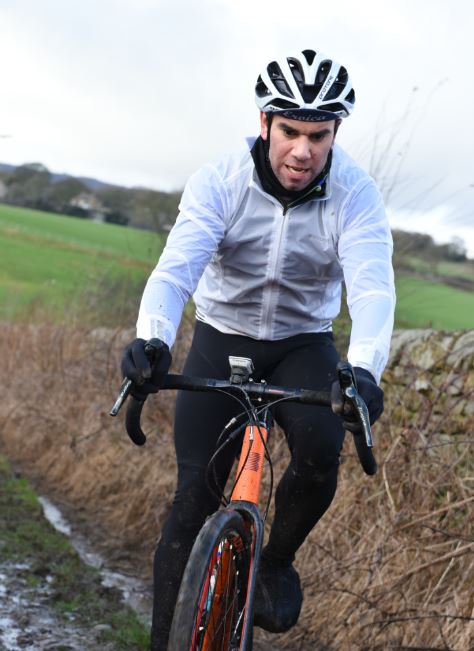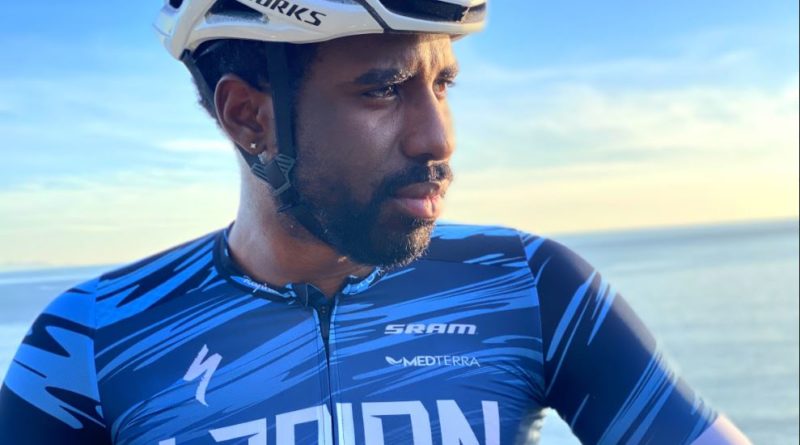Comment: Promoting diversity in cycling must be more than a gesture

The subject of diversity throughout the cycling world sprung into the headlines earlier this year, but vanished just as fast. Myles Marwood explains why the bike industry must stand together on diversity issues and better still, demonstrate with actions that gestures are not hollow…
It’s been quite a year in the cycling world, as the global pandemic set in cycling in the UK boomed, bike sales soared, and people decided to start to make lifestyle choices on how to get to and from work. Cycling became the vogue thing to do.
Also marking the start of the year, George Floyd died when an attempted arrest went wrong. A police officer put his knee on Mr. Floyd’s throat for over seven minutes, all over the dispute as to whether Mr. Floyd had tried to buy a pack of cigarettes with a fake $20 note.
Cycling realised it had a problem too, the lack of diversity in the sport is shocking. Magazines, realising they had to do something, quickly got articles written by the Black Cyclists Network, however months on where are the articles now? What are magazines doing to address the issue on diversity. Who is holding companies, sponsors, manufacturers, governing bodies and the likes to account?
The Tour de France’s attempt to acknowledge the BLM movement fell short of an attempt, it was a shambles. Left to the teams and riders to organise, #EndRacism and #BlackLivesMatter was scribbled on facemasks as riders wore them in the media pen and in the neutralised zone of the race. Not long enough for any form of media exposure, leaving those who knew about it, mainly white men who work in cycling journalism and media to give their opinion.
Ned Boulting labelled it as “underwhelming”. What is underwhelming is the media’s response to it. More pressure needed to be put on race organisers; the ASO needs to be held to account, the UCI needs to be held to account and arguably riders too. Do riders really feel it’s enough to scribble on some face masks to show support? Who is asking the riders these questions? If you’re not, why aren’t you? If you think what riders did on the final day of the Tour was underwhelming, why wait until the final day to address it? Why not ask on the first day? This race ran for three whole weeks. The first of three-week Grand Tours to ride to completion, no other mention of the movement was made at any other Grand Tour, nor the World Championships.
Kevin Reza, the only black rider at the Tour was given so little support by his peers and by ASO and by the UCI. This was a chance to make a stand with Kevin with black riders around the world. It would have made more of a statement if Kevin rode the first lap of Paris on his own with the peloton behind him, or if riders had worn black t-shirts in each neutral zone. So much more could have been done.
Marketing teams from nearly all corners of cycling saw an opportunity to address an issue and to change their advertising. Many decided to make a conscious effort to change their advertising. More women, more people of colour and more diversity – I’m still to see anyone who isn’t an able-bodied athlete in advertising for cycling yet, though.
Cycling is inclusive and for all, but this must be remembered in advertising as such. Look around when you’re riding down the road, do you advertise to this person, as well as to cycling on the whole?
Seeing more people of colour in advertising is fantastic, but companies must remember to stick by this, not for this to be a flash in the pan. More and more companies are finding people of colour to put in their advertising, but this must come with meaning and a want to change the sport, not just to keep face.
It’s been highlighted recently the effects of sports people’s activities on social media with the signing of Chloe Dygert to Canyon SRAM. Ms Dygert liked some tweets in the summer months which were inherently racist, bigoted and not accepting of the LGBTQ+ community. Whether Ms Dygert actually believes this or not is her own choice; this is a young lady who is from Indiana, a religious state with a very strong republican standpoint.
However, whether these beliefs are reflective of that of Canyon SRAM, their sponsors and accepted in the Women’s World Tour peloton is a completely different thing.
Everything that Canyon SRAM stands for and many of the sponsors of the team stand for – their marketing suggests from the past twelve months that this isn’t true. With Ms Dygert now riding for the team, inherently – whether you like this or not – they are seen to buy in to those beliefs and that is now what many will feel the team, sponsors and the team’s riders now stand for.
Now, you can say that Chloe Dygert has released an apology, along with Canyon SRAM, apologising to those who she “offended or were hurt” by her conduct on social media, but it is not an apology for her beliefs and what she did. If I said to you “I’m sorry you feel that way about what I did,” it’s not an apology for what I did, it’s me being sorry for the way you feel; it’s on you that’d you’re offended, not me. Yet, how many of the world’s cycling press got in touch with the sponsors, who are all smeared by this signing, to ask them what they’re going to do about it? As far as I know, one. Me.
Why? I believe you have to stand by your morals and if you want your sport to change for the better and be more diverse and accepting of people of colour, like myself, you have to hold people to account. Equally I don’t believe in jumping on bandwagons for the sake of keeping face, those same magazines and websites who roped in the BCN at the start of the year, where are they now at the end of the year? Where is the journalistic integrity to chase the diversity story and hold people to their actions?
Rapha claim to be more diverse, sponsoring team’s like L39ION of Los Angeles (shown in lead shot), who have more people of colour riding on one team than all three of this year’s Grand Tours put together. (Editor’s note: Rapha branded Dygert’s apology insufficient) Am I the only person to hold brands to account, I wonder? What are each of them planning to do next?
Am I the only person who thinks that, morally, you have to do something if you want to see lasting change in a sport?
This isn’t about being ‘woke’ or some other term born out of social media. I get consumer journalism survives on affiliations with companies, but in my experience companies equally like it when you challenge them. Give them an opportunity to tell you what they’re doing, why they’re doing it and what changes they’re making and if it’s not enough ask them why. Stand for what you believe in.
There’s no better time to make a change in cycling than now. People of colour in the peloton and in cycling journalism are in the minority and need white people to stand right beside us to keep this on the agenda for further development. There’s a way to go yet on diversity.
Photo: Legion of LA



